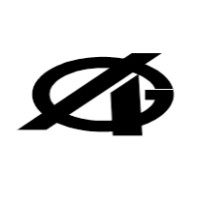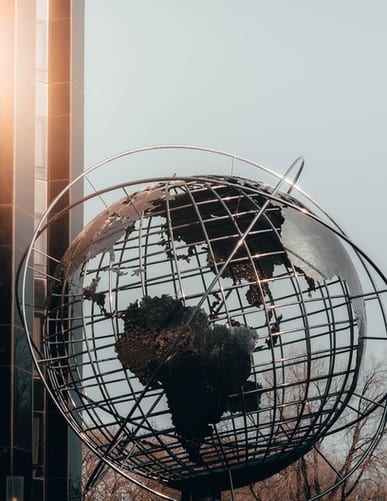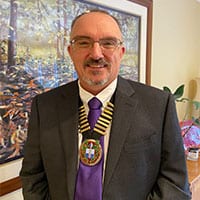Combatting the Jumbled Mind
Mental wellbeing is a big problem in industry. Depression is the leading cause of disability in the world, and mental health is the primary reason for suicide. We also know that work is a big contributor to mental health.
For example, the construction industry suffers globally more than most, with the rate of suicide of construction workers among the highest of all industrial sectors.
In the United States, research by the Centers for Disease Control & Prevention (CDC) discovered that suicide rates rose by 40% in the two decades to 2017. The most at-risk industries are mining, quarrying, oil and gas extraction, and construction.
It’s a similar story in the UK, where ONS suicide by occupation statistics show that most suicides involve people working in construction, electrical and metal trades, transport, plant and machinery, and elementary occupations.
Why are suicide rates so high in these types of industry? A study by Construction News found that major contributors to poor mental health include:
- Long hours
- Job uncertainty
- Working away from home
- High-risk environment
- Tight deadlines
- Poor pay and financial pressure
- Work culture
- Drug and alcohol abuse
Nobody deserves to become a victim of their own mental health. Here, we look at the signs to look out for, and a few strategies to improve your mental health.
12 Signs You Are Suffering From Poor Mental Health
You may not have thought before about how you cope with the challenges of your job. It’s critical you check in with yourself from time to time. Think about these following signs, and whether you are experiencing any of them:
- Feeling restless and anxious
- Strongly wishing to avoid work
- Unexplainable changes in eating habits
- Constant feelings of sadness or despair
- Difficulty sleeping
- Feeling irritable and getting easily frustrated
- Avoiding friends and family, or suffering relationship problems
- Feeling tired, unmotivated, and low
- Struggling to focus
- Feeling nauseous or suffering stomach upset
- Muscle aches and tension not caused by labour
- Feeling of dread, or panic attacks
Signs may vary from one person to another. The key to remember is, do you feel yourself? If you feel a mist or fog in your mind that is dampening how you feel, then you must act.
How You Can Combat Suicidal Thoughts
There is a way out of feeling low and depressed. Here are a few things you should do to help improve your mental health, and, consequently, your life:
1. Talk to Someone
You’ve already taken an incredible step forward in identifying that you need to act. You need the right people to help you along.
Talk to someone you can trust. This might not be the person you’d assume. A good manager or the person you work alongside each day can help you process your thoughts.
You must also talk to your boss to ensure your working patterns are not contributing to your mental health. Long hours can cause burnout and stress. Discuss how they can accommodate time off and exceptions should you need them.
2. Contact Your GP
Your GP will give you the information you need to ensure you can access any support you feel will help you, and guide you along the way.
3. Volunteer
If there’s a cause that’s important to you, take some time out to help. Actively doing something – such as helping animals or local community projects – will lift your spirits and help you rediscover a positive mindset to help map out your future.
4. Increase Your Exercise
Exercise is free medicine. It increases serotonin in the brain and reduces cortisol – both of which help to improve mental health when you are under stress.
5. Socialise More
This doesn’t mean make yourself feel uncomfortable. Little steps. When you’re on your lunch break, have lunch with your colleagues, or meet a friend away from work. Socialising in person can help you beat suicidal thoughts.
6. Look for the Positives
There are little positives everywhere. Like a walk in the autumn, or the smile on a loved one’s face, or the smell of birthday candles. Seek them out, and look forward to them.
7. Pick Up the Phone
Most countries have suicide prevention lines. A number you can call, with qualified people on the other end of the phone to help you battle mental health issues.
In the United States, the National Suicide Prevention Lifeline (1-800-273-8255) is a 24-hour hotline where you can call and speak to a trained counsellor. It is available to all Americans in need of emotional support.
In the UK, there are a number of phone numbers you can call, including the Samaritans on 116 123.
Wherever you live and work in the world, help is only a phone call away when you need it.
Understand That It Is Okay to Not Be Okay
There is one crucial solution to begin feeling how every human deserves to feel – and that is to talk. It’s true what they say – you are not alone.
There is more understanding of mental health today than there has ever been. It is no longer stigmatised like it used to be. You have friends and colleagues around you who will understand you. They may even be going through what you are – one in four adults suffer with depression every year (CDC).
And if you really don’t want to approach a friend or work colleague? Pick up the phone. Call a mental health helpline. Between 80% and 90% of people who seek treatment for depression are treated successfully (TADS study).
Talking. It’s the first step to get the support you need to feel yourself again.






